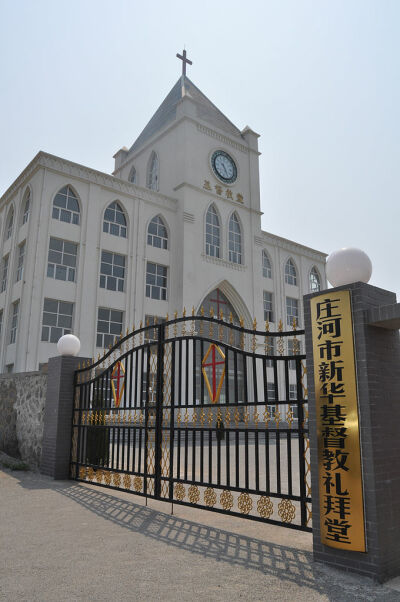Pastors report harassment as China clamps down on house churches
A Chinese pastor reported that government authorities were poised to clamp down next on their house church amid the communist state's ongoing crackdown on house churches.

According to China Aid, Zhongfu Canaan Church Pastor Zhang from southern Guangdong province recounted early this month how he was summoned by state authorities who referred to their church as an "illegal gathering" and then asked them to join Three-Self Patriotic Movement. TSPM is one of the largest Protestant denominations in the country.
Authorities also reportedly asked the pastor details about the church such as the identities of its members and their funding. Zhang said he told them that their church has already existed for decades and that they cannot join TSPM.
"No [official] has come yet [to enforce], but the landlord is already very frightened," Zhang told China Aid, which serves as a watchdog for Christian persecution in the country. "He said, 'You need to move out immediately....' This is our current circumstance," he added.
An unnamed pastor who also spoke to the organization shared that pastors discussed how to deal with the government's clampdown against the churches during the National Work Conference on Religions. The pastor opined that the clampdown is more likely to start "where the churches are most active," citing Shenzhen, Guangdong and Dongguan.
A Christian member of Houshi Church, the largest house church in Guiyang province, also spoke in anonymity in an earlier interview and revealed that they discovered a state-run center dedicated to church persecution.
"I knew [the government was] going to do something about the church, but I didn't expect it to be so serious," the Christian said, adding that targeting Houshi Church is only part of a "big plan" by the state.
"If they have a [command and control center] they can mobilize all their resources," the source continued. "At the beginning, I just thought it was just at the city-level, but this document suggests that there must be some provincial level [government body] or an even higher on the operation."
 Christians don't have to affirm transgenderism, but they can’t express that view at work: tribunal
Christians don't have to affirm transgenderism, but they can’t express that view at work: tribunal Archaeology discovery: Medieval Christian prayer beads found on Holy Island
Archaeology discovery: Medieval Christian prayer beads found on Holy Island Presbyterian Church in America votes to leave National Association of Evangelicals
Presbyterian Church in America votes to leave National Association of Evangelicals Over 50 killed in 'vile and satanic' attack at Nigerian church on Pentecost Sunday
Over 50 killed in 'vile and satanic' attack at Nigerian church on Pentecost Sunday Ukrainian Orthodox Church severs ties with Moscow over Patriarch Kirill's support for Putin's war
Ukrainian Orthodox Church severs ties with Moscow over Patriarch Kirill's support for Putin's war Islamic State kills 20 Nigerian Christians as revenge for US airstrike
Islamic State kills 20 Nigerian Christians as revenge for US airstrike Man who served 33 years in prison for murder leads inmates to Christ
Man who served 33 years in prison for murder leads inmates to Christ


 Nigerian student beaten to death, body burned over ‘blasphemous’ WhatsApp message
Nigerian student beaten to death, body burned over ‘blasphemous’ WhatsApp message 'A new low': World reacts after Hong Kong arrests 90-year-old Cardinal Joseph Zen
'A new low': World reacts after Hong Kong arrests 90-year-old Cardinal Joseph Zen Iran sentences Christian man to 10 years in prison for hosting house church worship gathering
Iran sentences Christian man to 10 years in prison for hosting house church worship gathering French Guyana: Pastor shot dead, church set on fire after meeting delegation of Evangelicals
French Guyana: Pastor shot dead, church set on fire after meeting delegation of Evangelicals ‘Talking Jesus’ report finds only 6% of UK adults identify as practicing Christians
‘Talking Jesus’ report finds only 6% of UK adults identify as practicing Christians Mission Eurasia ministry center blown up in Ukraine, hundreds of Bibles destroyed: 'God will provide'
Mission Eurasia ministry center blown up in Ukraine, hundreds of Bibles destroyed: 'God will provide' Church holds service for first time after ISIS desecrated it 8 years ago
Church holds service for first time after ISIS desecrated it 8 years ago Burger King apologizes for 'offensive campaign' using Jesus' words at the Last Supper
Burger King apologizes for 'offensive campaign' using Jesus' words at the Last Supper Uganda: Muslims abduct teacher, burn him inside mosque for praying in Christ’s name
Uganda: Muslims abduct teacher, burn him inside mosque for praying in Christ’s name